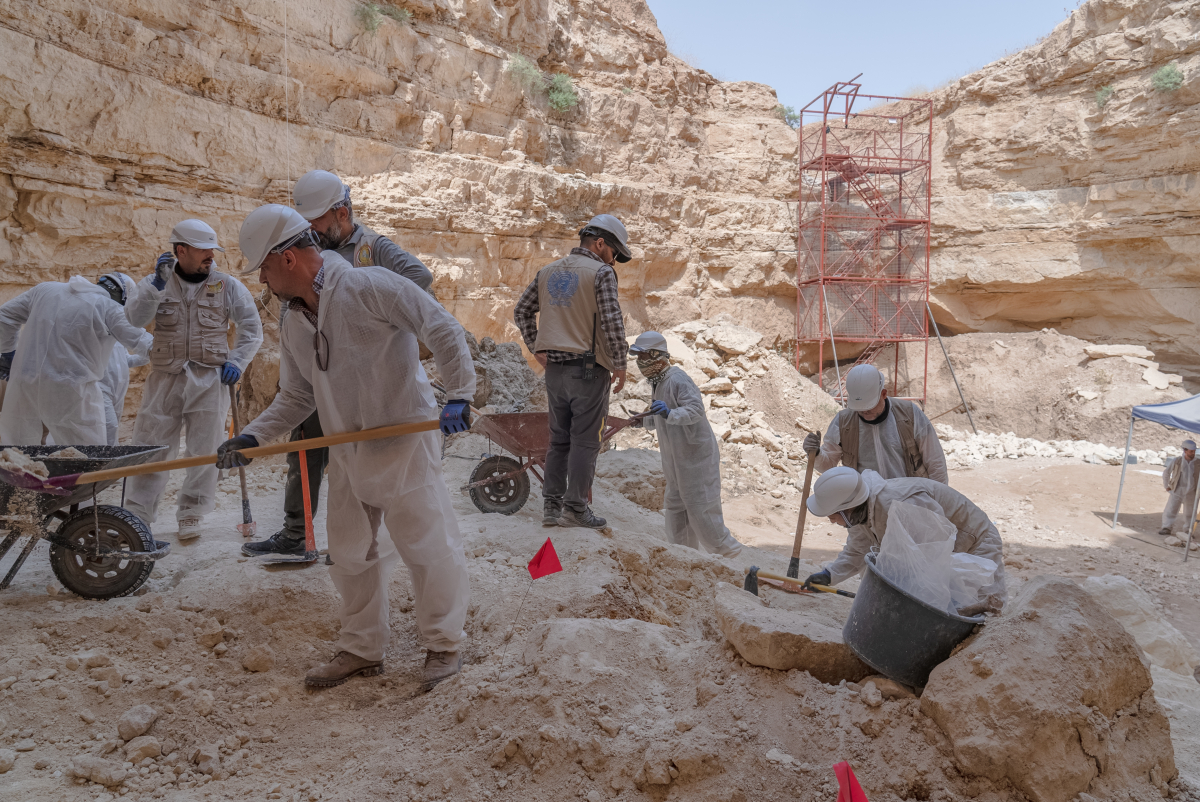Iraqi Authorities

The Iraqi authorities, including those from the Kurdistan region, were central to operationalizing, and concretely contributing towards, the core activities of the Team, notably investigations, evidence collection and capacity-building. As part of this cooperation, these authorities facilitated roughly 2,000 field missions by the Team to 71 locations across the country in line with paragraph 44 of the Terms of Reference.
The Iraqi authorities, particularly the Iraqi judiciary, provided most of the evidence collected and held by the Team, helping to support its investigative work and assessment of the acts by ISIL (Da’esh) as war crimes, crimes against humanity and genocide. As part of this evidence collection effort, the Team worked with the Iraqi authorities to undertake sixty-eight (68) mass grave excavations and return identified victim remains, notably with the Mass Graves Directorate (MGD) and Medico-Legal Directorate (MLD); digitized roughly twenty (20) million ISIL (Da’esh)-related paper records and acquired data from a significant number of seized ISIL (Da’esh) digital devices. The Team provided extensive support in the conduct of these activities to build the capacity of its counterparts through the provision of training, equipment, and technical/substantive expertise.
In line with Security Council resolutions 2379 (2017) and 2697 (2023), as well as the Terms of Reference (S/2018/118, Annex) and the Report of the Secretary General (S/2024/20), the Investigative Team delivered information from its holdings and related work products to the Iraqi authorities in the final months of its mandate. This included two different versions of the same evidence: one consisting of information collected by the Team in its original, unaltered state as created and stored digitally, done to protect its use and integrity in judicial proceedings; another consisting of information that was organized, categorized and tagged by the Team, making it more easily searchable and ensuring its utility and effectiveness as an investigative asset.
The Team used this latter version over the years to develop case assessments and analytical reports. Twenty (20) such assessments and reports were finalized and delivered to the Iraqi authorities before the conclusion of its mandate along with underlying evidence originally collected in the field by the Team. Forensic reports and other analytical products were also delivered along with information collected from open sources to ensure future access.
Capacity-building in other areas relevant to the mandate were also provided to the Iraqi authorities. An in-depth training course on international humanitarian law and international criminal law was organized to help a select group of Iraqi judges, prosecutors and investigators develop a specialization in this area. One part of this course included an in-person training delivered at the International Nuremberg Principles Academy in Germany. Additionally, UNITAD helped to establish and train a specialized witness protection and support unit within the Ministry of Interior and cooperated with the Ministry of Health – along with a range of non-governmental organizations; and community, tribal and religious leaders - to augment a psychosocial support capacity in Iraq and referral network for ISIL (Da’esh) survivors, witnesses and their families.

